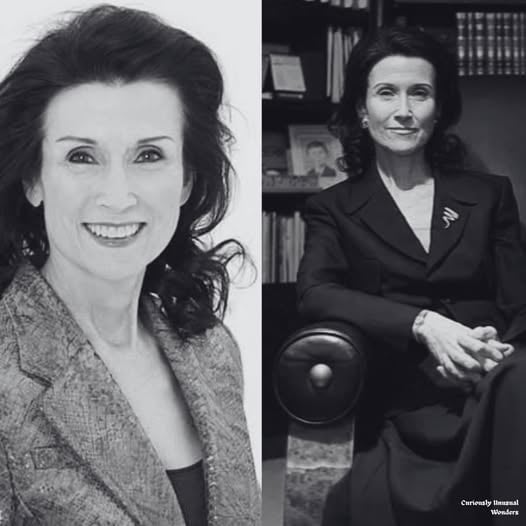The World's Highest IQ
The Question That Could Revolutionize Learning
Jerry Romo
9/22/20254 min read


Meet Marilyn vos Savant
This woman holds the highest IQ ever recorded---an incredible 228. Higher than Einstein (160--190), Hawking (160), or Musk (155).
Meet Marilyn vos Savant. From Prodigy to Pioneer, Marilyn was anything but ordinary and by age 10, she had memorized entire books and read all 24 volumes of the Encyclopedia Britannica while scoring an unprecedented IQ of 228.
She was apparently destined for a life of unlimited success, but what seemed like a trivial question changed the course of her career.
"No one paid much attention to me---mostly because I was a girl. And I accepted that," Marilyn later recalled. She went to a regular public school, left Washington University after two years to help with the family business, and for a time appeared headed for an unremarkable life.
Then, in 1985, everything changed when the Guinness Book of World Records recognized her as having the "Highest IQ" ever measured at 228. Marilyn was thrust into fame making achieving magazine covers for New York and Parade and an appearance on Late Night with David Letterman.
Yet despite her brilliance, she once faced widespread ridicule for a question that seemed simple. She recognized what almost everyone else missed—and her insights might hold the key to transforming education itself when she was suddenly faced with a challenge when one single question ignited an intellectual debate.
Writing her famous "Ask Marilyn" column for Parade seemed the perfect job for a mind like hers, until a letter arrived in September 1990.
The letter posed what became known as The Monty Hall Problem.
A game show scenario with three doors:
• Behind one is a car
• Behind two are goats
You pick a door. The host opens another to reveal a goat.
Should you switch?
Marilyn's answer: "Yes, switch."
The readership reaction was explosive.
Over 10,000 letters flooded in, nearly 1,000 from PhDs, insisting she was wrong:
• "You are the goat!"
• "You blew it, and you blew it big!"
• "Maybe women see math differently."
But she was right. Let us consider the odds:
Pick the car first (1/3 chance):
• Switching loses.
Pick a goat (2/3 chance):
• The host reveals the other goat.
• Switching wins.
Switching gives a 2/3 chance of driving away with the car!
Eventually, simulations at MIT confirmed her logic and MythBusters tested it and agreed, and some critics found themselves apologizing.
Why did so many miss the answer? They "reset" the problem instead of tracking the changing probabilities. The simplicity of three doors hid the deeper math and many assumed the final choice was a 50/50 toss-up.
In terms of the educational crisis that many countries are confronting, Marilyn’s genius identified several things worth considering.
Marilyn's perspective on why so many brilliant minds got it wrong cuts to the heart of a deeper problem: she blamed conventional schooling for discouraging independent thought---creating passive learners and suppressing true critical thinking.
This observation feels more urgent today than ever. Learning has been static for decades, trapped in the same industrial-age model that prioritizes memorization over understanding, conformity over creativity, and standardized answers over innovative thinking.
But what if technology, specifically AI Learning Management Systems, could finally break this cycle?
Can AI Change How Our Schools Teach? Marilyn's experience with the Monty Hall Problem reveals everything wrong with traditional education—and everything AI might fix:
The Problem: Conventional schools teach students to accept authority rather than question it. When faced with counterintuitive problems, even PhD-holders defaulted to assumptions rather than working through the logic.
The AI Solution: Artificial intelligence could create personalized learning experiences that encourage students to explore multiple approaches, test hypotheses, and develop genuine understanding rather than memorizing "correct" answers.
Consider how AI could transform the classroom:
• Adaptive questioning that adjusts to each student's thinking patterns
• Simulation environments where students can test theories safely
• Socratic dialogue that guides discovery rather than delivering facts
• Pattern recognition that identifies when students are truly understanding versus just memorizing
The Monty Hall Problem would become a teaching tool, not a gotcha question. AI tutors could walk students through the probability shift, let them run virtual simulations, and help them discover the counterintuitive truth for themselves.
Many long-time educational activists have been saying that the system needs to go beyond traditional boundaries and do so right away. What makes this transformation possible is AI's ability to break free from the constraints that limited previous educational approaches:
· Personalization at Scale: Unlike human teachers managing 30 students, AI can provide individualized attention to each learner's unique cognitive style—whether they think like Marilyn or need different approaches entirely.
· Infinite Patience: AI doesn't get frustrated when students struggle with concepts that seem "obvious" to others. It can present the same idea in countless ways until understanding clicks.
· Safe Exploration: Students can make mistakes, ask "dumb" questions, and challenge conventional wisdom without social pressure or judgment.
Learning From the World's Highest IQ
Marilyn's story offers a blueprint for what education could become. Her ability to see what others missed wasn't just about raw intelligence—it was about approaching problems with fresh eyes, questioning assumptions, and thinking independently.
These are exactly the skills AI-powered education could nurture in every student.
Instead of creating passive recipients of information, we could develop critical thinkers who approach problems like Marilyn approached the Monty Hall Problem: with curiosity, logic, and the courage to stand by their reasoning even when the world disagrees.
Innovation
Backed by 30+ years developing and delivering software solutions.
CONTACT US
SUBSCRIBE FOR NEWS AND UPDATES
jromo@CassandraLabsPh.com
Sales: +63-917-318-6971
esguitierrez@CassandraLabsPh.com
